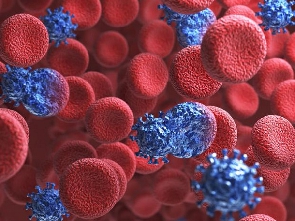The most terrible misfortune of man is to toil your youthful age and not enjoy the fruit thereof in the future. My eyes are soaked in tears anytime I see old people fighting their fate to cancer. Yes, the risk of getting cancer increases with age but cancer does not have to be an inevitable consequence of growing older. We can't stop ageing but we can take certain steps to reduce our risk even in later years.
It's of no disputable fact that, whatever you sow in your adult life is what you will reap in your old age. Cancer is the abnormal cell growth with the potential to invade other parts of the body. It's among the leading causes of death worldwide leading to 9.6 million deaths in 2018 (WHO). You develop precancerous cells your whole life, fortunately, at your young age, your immune system is very strong and able to target those cells and kill them. But as you age your immune system weakens and fails to target some of these cells causing damage in your cells to build up and more chance that some of these damages might eventually lead to cancer. Know that, you grow each day and if you do, what do you think is happening to your immune system?
Most cancer risk factors are lifestyle dependent. In your lap of luxury, what do you eat? Don't brush off the quote “you are what you eat”. Be mindful of your food choices. Some foods eaten put you at risk of cancer: salty and fermented fish, high fat (saturated) diets such as sausages, burgers, kebabs, beef, and processed meat. This isn't to put a spoke in your wheel, eat but eat in moderation.
What do you have a crack at as a young adult? Enjoy yourself if you want to but in doing so, what do you do? Unsafe sex, tobacco use, smoking, and alcohol use; all are detrimental to your health. Now, you enjoy doing them years later, you will regret it when you are battling on your death bed with cancer.
Research has it that, for every 15 cigarettes smoked, there is a DNA change that could cause a cell in the body to grow out of control and create a cancer tumour (Center for Disease Control). According to WHO, tobacco use is the most important risk factor for cancer-causing over 20 % of global deaths
All types of alcoholic drinks including red and white beer and cocktail liquor are linked with 6 types of cancer: mouth, voice box, oesophagus, colon, liver and breast cancer. If you drink alcohol at all, drink in moderation —no more than one drink a day and two drinks a day for women and men respectively.
Do you know that a higher number of sex partners, sex with a man whose partner had cervical cancer and your first intercourse at a young age increases your risk of contracting human papillomavirus, which can lead to cervical cancer?
Obesity is a major risk factor for several causes of cancer. Steer clear of any food and activity that predisposes you to obesity. The Cancer Research Fund recommends limiting “fast foods” and other processed foods high in fat, starch, and sugar to match a healthy weight. Even if you are obese, what are you doing about your weight? Don't flush down any concoction into your system to gain normal weight. Do it the right way—exercise! Don't sit idle about your weight. An exercise a day keeps your weight under control.
Many would ask, what about cell phones? Well, recent studies can't tell the story of the possibility of phones causing cancer. After evaluating several studies on the possibility of a connection between cellphones and cancer, it's been agreed that there is limited evidence that cell phones are cancer-causing agents. For cell phones to cause cancer, you have to consider the amount of time spent on the phone, its proximity to the head, and the model of the phone ( different phones give different amounts of energy).
Early signs of cancer: lumps, sores that fail to heal, abnormal bleeding, persistent indigestion, and chronic hoarseness identified at an early age should be reported at the hospital immediately. Cancer identified early can be treated.
If we embrace healthy lifestyles as youths: quit smoking, stay active, exercise, watch our diets, and reduce alcohol intake; the cancer rate in Ghana and the world as large will decline over the next few years. Your life is in your hands. Your health is your greatest asset. Let's create a future without cancer. The time to act is now.
Opinions of Thursday, 4 February 2021
Columnist: Edith Zipki















